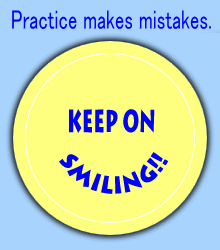3月27日、楽年の終わりに、As Time Goes By(映画『カサブランカ』のテーマ曲、公有)の替え歌を皆さんに贈ります。
This April, “Ken’s Enjoy English Conversation” is going into its second year. To show our appreciation for your support, I parodied one of the most famous songs in English, “As Time Goes By,” for all the listeners. It will be aired tomorrow. I hope you enjoy the song and sing it with us. On behalf of all the staff, many, many thanks! And I hope you keep listening, keep practicing and keep on smiling!! —- Ken Toyama
As Time Goes By このオリジナルの歌詞がどう変わるのかお楽しみに。
(1)~(4)が穴埋め問題となっているので一応このままで。
You must remember this:
A kiss is still a kiss,
A sigh is just a sigh.
The fundamental things (1 ).
As time goes by.
And when two lovers woo,
They still say, “I love you.”
On that you can (2 ).
No matter what the future brings
As time goes by.
Moonlight and love songsーnever out of date.
Hearts full of passion, jealousy and hate.
Woman needs man,
And man must have his mate.
That no one can (3 ).
It’s still the same old storyー
The fight for love and glory,
A case of do or (4 ).
The world will always welcome lovers
As time goes by.
これは覚えておくように
キスはいまもキス
ため息はただのため息と
基本は通用することを
時の過ぎゆく中で
愛する二人が求め合えば
まだ「アイ・ラヴ・ユー」と言う
それは当てにしてよいこと
どんな未来が来ようとも
時の過ぎゆく中で
月影とラブソングはすたれはしない パッションも嫉妬も憎しみも
女は男が必要なもの
男は連れ合いを求めるもの
それは誰も否定できはしない
未だに話はお決まりのもの 愛と栄光のための闘い
伸るか反るかの大勝負
世界は恋人たちにいつも優しい
時の過ぎゆく中で











